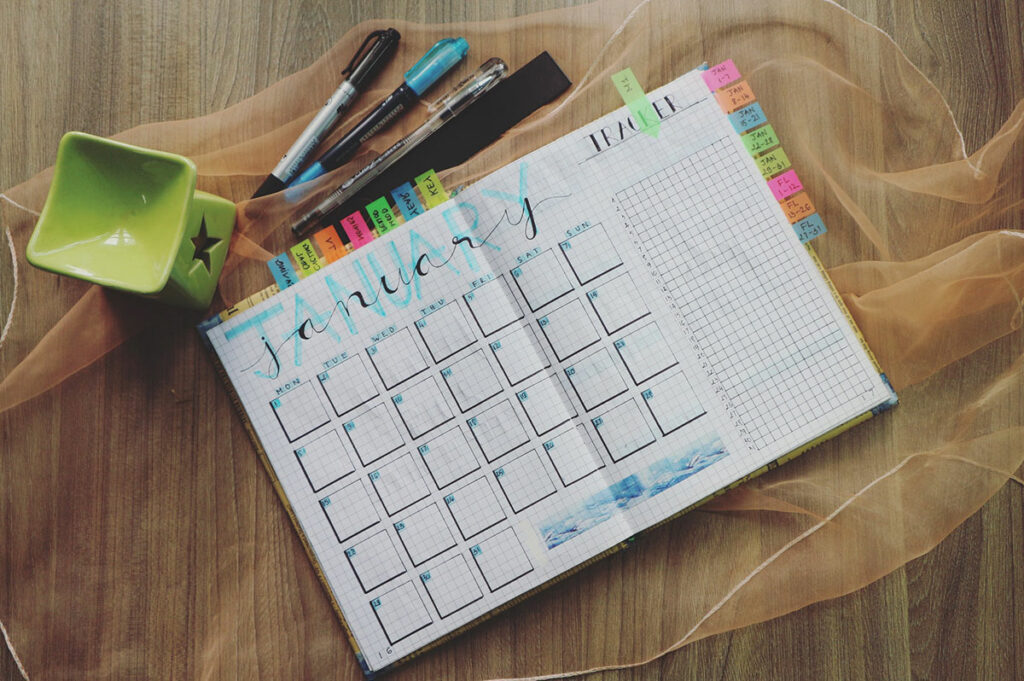2025: The Masterplan
Leaving the past behind you and stepping into a new and unknown year can be daunting. But here are a few coping strategies to help you get through the year ahead
Work out your strengths and weaknesses
Before you attempt to make any plans, it is always a good idea to figure what you’re good at and what you’re not so good at.

The reason for this is that you can make the most of what you’re naturally good at while minimising the chances of failure by understanding what you’re lacking, and eliminating those hazards that would otherwise catch you off guard. Think about how you can improve on those weaknesses.
Accept difficulty
Whatever plans you make, there will inevitably be disruption, difficulty and unexpected stress. A plan will never go as expected so remind yourself that difficulty and dealing with problems is actually part of the plan.

Accepting this fact will help calm your mind and reduce the risk of you abandoning your plans either before, or during them. It will make you more willing to keep on with your goals.
Avoid black and white thinking
Building on your ability to accept that difficulty will occur in your plans, it’s helpful to develop a way of thinking that’s adaptable to these unexpected obstacles.
Beautiful things take time and you should pursue improvement and not perfection. Should a part of your plan not go as expected, that doesn’t mean that the whole plan has failed. If you do experience a setback, remind yourself that this is part of the plan and that you can start again.
Practising this process repeatedly will help you build resilience, which will stand you in good stead in other areas of your life.

Find methods that work
Whatever your plans are, you are going to want to find methods that make you more likely to achieve them. That could mean getting up early in the morning and working on your plans if you’re more of a morning person, or later on in the day if you’re more of a night owl. Try out mind-mapping, sticky notes or even spreadsheets – whatever works best for you.
Lists help some types of people too, and taking the time to plan for the day ahead the night before also helps others. Find out what works for you but don’t force yourself into routines that aren’t productive or enjoyable for you.
Learn from others
If you want to accelerate your plans, learning from others is a great way to eliminate learning the hard way.

Whatever your plans are based around, research your field. Find out what others have learnt during their processes and what mistakes they have made so that you don’t have to waste time. Seeking out help and advice is not a sign of weakness. Instead, it shows a mature way to approaching your plan, and getting yourself to a basic level of understanding in your chosen field is a good foundation from which to work.
Be tenacious
Resilience is a key quality to have. It’ll see you through good times and challenging ones – even when your plans aren’t going the way that you want them to.

When problems do arise, which they invariably will, keep in mind the overall objective that you are working towards. All the smaller problems that you are solving will help move you slowly but surely towards your end goals.
Set deadlines
The thought of setting deadlines can be scary at first but they do in fact, provide both a carrot and a stick when it comes to planning.
Setting aside time to create deadlines gives you more of a timescale and a vision of what you are trying to achieve. It will also remind you that whatever it is you are planning, that everything will have a time and a place, which won’t make you stress that you’re not working on one part of your plan while you’re working on the other.
Deadlines also provide you with a sense of urgency when needed, giving you that kick up the backside that you may need.

Have a back up plan
The one thing that’s guaranteed to happen to a plan is that it won’t go to plan. As watertight as you think you can make it, unforeseen problems are the gremlins that will jump up, catch you out, and take up a lot of your time. It’s therefore prudent to consider back-up plans, plans that you can fall back on in a contingency.
A contingency plan is a plan devised for an outcome other than in the usual (expected) plan. The reason you should have one in place is to help protect your main plan and to recover it should something go wrong. Think about the resources that you’re using – what would happen should any of these resources suddenly not be available? How would that affect your plan? What could you do to get around this problem? Identify what potential problems could occur should you not reach any of your deadlines. Keeping an open mind that there may be more than one route to your final destination will keep you flexible and less stressed because you know that you’ve got your bases covered.


